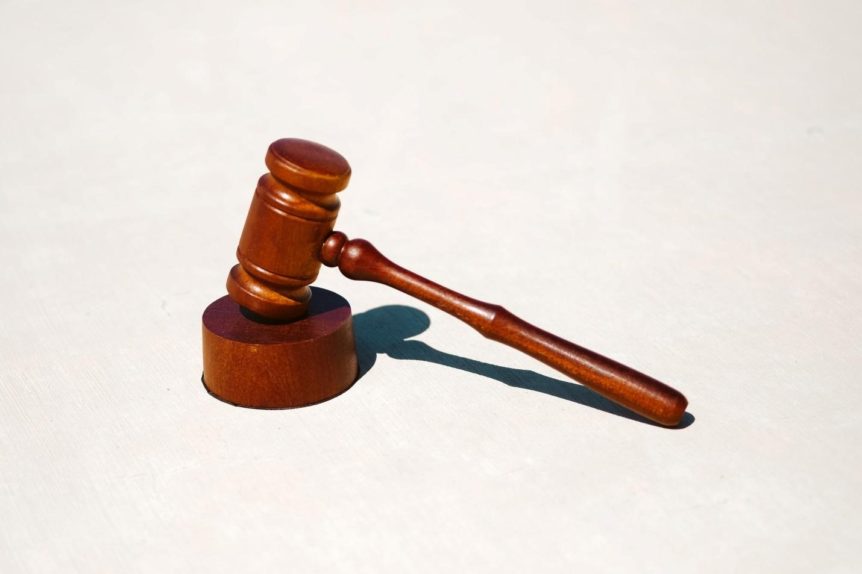Any time there’s a car accident, a lawsuit follows soon after. The entire ordeal can be a nightmare regardless of which side of the fence you sit.
The settlement process alone is enough to drive you to your wit’s end. It can be a long, drawn-out affair. It’s the reason why most people breathe a sigh of relief once the insurance settlement is paid out since, for many, it signals the end of any further litigation.
While this is generally true in most cases, receiving an insurance payout may not prevent a civil lawsuit. Can someone sue you after insurance pays? Here’s everything you need to know.
When Can You Be Sued After an Insurance Claim Settlement
Generally, a vehicle accident victim cannot file a lawsuit after agreeing to a claim settlement. Like with all things, however, there is an exception to the rule.
For one thing, if the settlement appears to have been tainted in some way or it can be proven beyond reasonable doubt that the defendant in question acted fraudulently or coercively, these are all grounds for a lawsuit. However, these scenarios would require misconduct on the part of the defendant’s legal team, which is rarely the case.
A more plausible scenario would be a situation where you’re found to be an additional at-fault party in a car accident suit that has been partially settled.
This may arise in instances where the victim in an auto accident case may not have initially been aware that there was another party involved in the incident.
This information may have only come to light after they had settled with their insurance. In such cases, the victim may file a lawsuit against you as an additional at-fault party.
When Can You Not Be Sued After an Insurance Claim Settlement
Generally, anytime an individual agrees to an insurance settlement, they sign an agreement that releases all the at-fault parties from incurring any liability or undergoing future litigation related to the accident in question. This is particularly common in personal injury and car accident cases that involve insurance companies.
This rule exists to give insurers the reassurance they need to know that they won’t have to deal with any further lawsuits related to a particular accident once they settle a claim. If this rule didn’t exist, insurance companies would have no reason or incentive to settle claims in the first place.
Settlement agreements are legally binding and release the defendant(s) and the insurance company from all future liability. The settlement agreement still holds even if the victim realizes later that their accident was worth a lot more money than the lowball insurance settlement offer they received.
This is precisely why all parties to an accident need to carefully review the legal documents presented to them before signing. An experienced insurance claim lawyer will help break down the complexities of these contracts to ensure that your interests are protected at every step of the settlement process.
How to Negotiate a Settlement With an Insurance Claims Adjuster
If you’re sitting on the other side of the table and want to make a personal injury claim after an accident, you will need to negotiate with the at-fault party’s insurance company.
This still applies even if you’ve gone a step further to file a lawsuit. The settlement negotiations will be ongoing. The case can be terminated at any time once a suitable out-of-court settlement has been reached.
You or your insurance claim lawyer will initiate the process by presenting the at-fault party’s insurer with a demand letter detailing the injuries you sustained together with the respective supporting documents. The letter will also list the damages you’re seeking in your claim.
The settlement negotiation process will typically involve a couple of phone calls with the insurance claims adjuster. The adjuster will first give you a lowball insurance settlement offer to try to get you to settle your claim for an amount lower than what you initially quoted in your demand letter.
You will then counter their offer with an amount higher than what the adjuster offered but lower than the initial amount you had stated in your demand letter. The final settlement figure that all parties agree to will be somewhere in between the two.
Below are a few tips you can use to negotiate a settlement with an insurance claims adjuster to get the best possible outcome.
Have a Settlement Figure in Mind at the Beginning of the Process
You’ll need to decide beforehand what the minimum settlement amount you’re willing to take is. Keep this information to yourself during the negotiation process.
Don’t Jump at the First Offer
The first offer the adjuster makes will be a low figure just to scope you out and see whether you know what you’re doing. Never accept the first offer, and don’t immediately lower the amount you listed in your demand letter. If, on the other hand, the offer seems reasonable, you should still counter with a figure that’s a little lower than what was in your demand letter.
Ask the Insurance Adjuster to Justify Their Offer
Write down all the reasons they provide to justify their low offer. Then, address each one of those reasons in a letter justifying why the settlement offer is too low.
The next time you speak to them, ask them to respond to your reply letter. If you find that some of the adjuster’s reasons bear merit, you can lower your initial demand a bit to show them that you’re willing to be reasonable.
Stress the Emotional Aspects That Support Your Claim
If the accident you suffered caused permanent or long-term effects, you can mention that the medical costs you quoted are reasonable. If your injuries prevent you from caring and providing for your child the way you should, mention that as well. Justifying the emotional component of the injuries you sustained will propel the insurer to present a reasonable settlement offer.
Life Insurance Settlement Options

If an accident resulted in the death of a loved one, there are various life insurance settlement options available to you as the main beneficiary. In most cases, the policyholder (now deceased) would have already chosen the settlement structure of the benefits to be paid out. However, depending on the policy in question, a beneficiary may be allowed to change this structure later. The most common life insurance settlement options include:
- Lump-sum payment – The entire settlement amount is paid out in a single, tax-free payment.
- Interest-only – The insurer holds the principal settlement and periodically pays out the earnings received on that amount.
- Interest accumulation – The insurance company holds both the principal and the interest on that amount. The beneficiary can request a withdrawal anytime they need to access the funds.
- Fixed period – The insurance company distributes the total death benefit and the interest accrued over a specific period.
- Fixed amount – A fixed monthly payment that includes the principal and interest is paid out until the entire settlement amount is depleted.
- Life annuity – This structure guarantees a lifetime stream of payments until the death of the beneficiary.
Get Legal Help With Your Claim
Auto-accident and personal injury cases can be complex. Ensure that you retain the services of an experienced insurance claims lawyer to protect your legal rights during every step of the settlement process.
Do you have any legal questions for us? Chat online with a Laws101 attorney right now.
